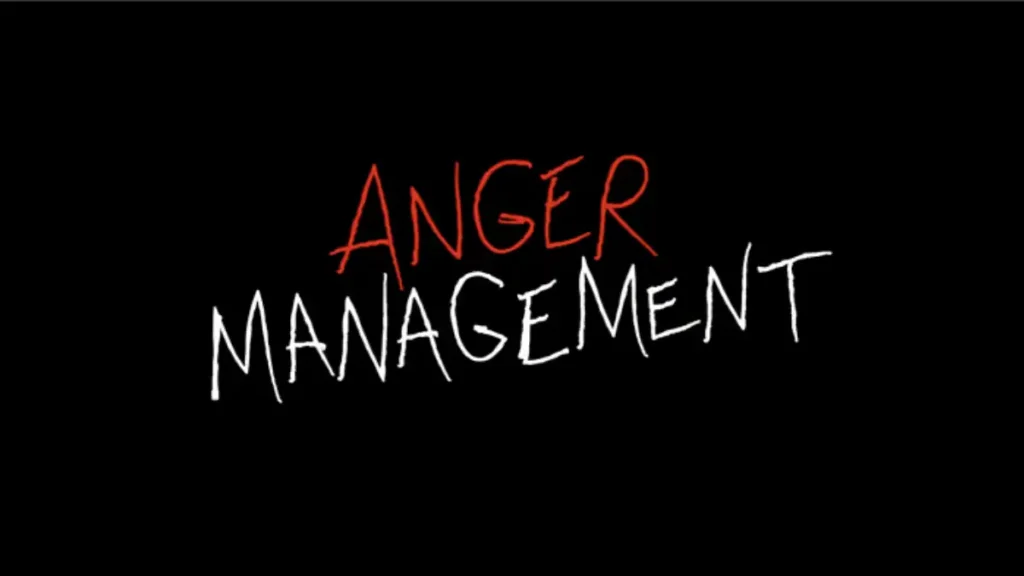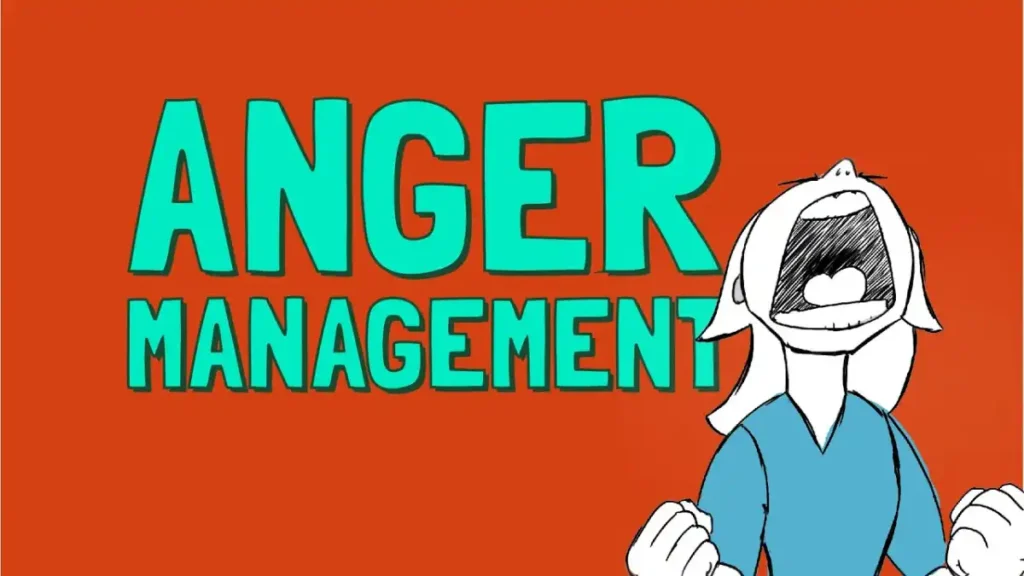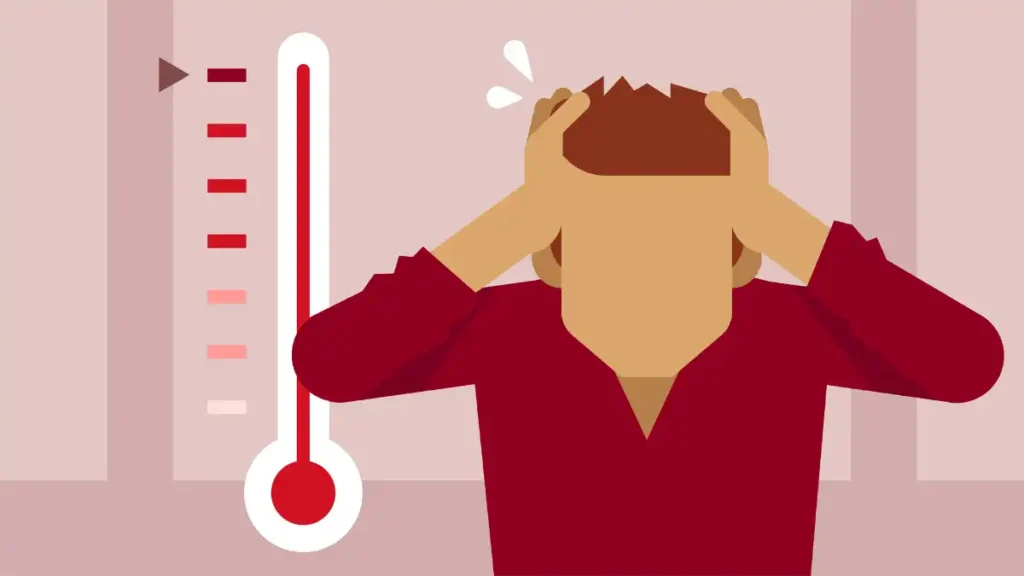Everyone becomes enraged. But your physical and mental well-being can suffer if you become angry. One sort of therapy that helps with coping and communication is anger management. To help you maintain composure, it also offers relaxing techniques.

Today, We talk about anger management and tell you the expert Dr. Aradhna Gupta, a Clinical Psychologist thoughts, tips, and techniques about anger management.
What is anger management?
Anger management is the process of controlling our reactions to things that make us angry. It’s also a type of talk therapy, also known as cognitive behavioral therapy, that can be used in group or one-on-one counseling settings. You could even enroll in anger management classes.

You will discover how to recognize when you’re furious and develop healthy coping mechanisms for these feelings with the assistance of a mental health expert. This is known as anger management treatment. You’ll learn facts regarding:
- What causes anger and how do people express it
- Problem-solving and communication skills
- Relaxation techniques

In some cases, your therapist may suggest that you see a physician to obtain medication prescriptions to help with psychological issues, like depression or anxiety, which often result in persistent issues with anger.
What happens if you don’t find healthy ways to express your anger?
Repressing your anger can lead to negative thinking and behavior patterns, as well as be the cause of or worsen many health problems. Healthcare professionals refer to it as chronic anger when you experience more furious episodes than not. Chronic rage has been connected to many health problems, such as:

- High blood pressure
- Heart disease
- Headaches
- Skin disorders like atopic dermatitis (eczema) and psoriasis
- Digestive problems like abdominal pain, constipation, and diarrhea
Is anger bad?
Anger is a normal and frequent emotion. It can be detrimental or beneficial, depending on how you use it. You might wait a minute until the sensation in your chest subsides before driving away, for example, if you attempt to pull into that parking space but are unsuccessful.

Alternatively, you may exit the vehicle and scribble a critical message on your neighbor’s windscreen. In both situations, you’re furious. However, in the first case, you become aware of your anger and let it go. You disseminate the negativity in the second. and most likely keep it with you the entire day.

Anger is a really beneficial feeling. However, it may be time to seek out anger management assistance if you find yourself becoming angry more frequently than you’d like or if it begins to interfere with your relationships or career.
Who needs anger management therapy?
Learning how to control one’s anger is beneficial for everyone. Additionally, anger management therapy can significantly improve your relationships and quality of life if you suffer from a mental health illness. Among these prerequisites are:

- Attention-deficit/hyperactivity disorder
- Bipolar disorder
- Borderline personality disorder
- Depression
- Disruptive mood dysregulation disorder
- Generalized anxiety disorder
- Intermittent explosive disorder
- Oppositional defiant disorder
What happens during anger management classes or therapy?
During anger management therapy, you will acquire coping mechanisms that enable you to recognize your triggers and the expression of your anger. Your therapist may inquire about:
- What makes you angry?
- What are you really angry about? Is the intensity of your anger appropriate for the situation?
- Is your anger masking another emotion? Fear? Anxiety? Hurt? Shame? An underlying health problem? Is it a reaction you learned as a child?
- How does anger feel in your body?

After that, you and your therapist will collaborate to create coping mechanisms. As soon as you recognize that you are angry, you can take these helpful skills and steps. Coping mechanisms for managing anger include:
- Modifying your perspective on circumstances. This may be referred to as cognitive reorganization by your healthcare professional. You will learn to change your perspective rather than focusing on or magnifying your unpleasant emotions. You may replace self-deprecating statements such as “This is the worst thing that’s ever happened to me” with more constructive ones. Say something like, “This is bad and it’s okay to be upset, but it’s not the end of the world,” as an alternative.
- Communication techniques that support constructive ways of expressing your rage. You’ll discover many techniques for assessing your responses and communicating your emotions. Assertiveness training might also be beneficial to you.
- Relaxation methods can assist you in pausing before responding. They can also assist you in letting go of problems once you’ve addressed them, as opposed to ruminating on them endlessly. This could involve yoga, breathing techniques, or meditation. Alternatively, you could collaborate with your therapist to determine what soothes you.

During your therapy sessions, you and your therapist will also put these newly acquired abilities to use. Classes on anger control frequently involve practice outside of treatment sessions. You’ll need to put your new strategy into practice until you’ve experienced some success controlling your anger (a decrease in the frequency or intensity of furious outbursts) and the methods begin to come more easily.
Therapy for anger control takes various forms. It also varies in appearance with age, so what appears different on your school-age child will look different on your teen, and what looks different on you than on your parents. The strategies your therapist uses for anger management will be determined by their prior experience as well as what they believe would be most effective for you.
Anger Management Risks and Benefits

What are the potential benefits of anger management?
Your relationships at work and home may improve as a result of anger management treatment. You’ll experience an increase in emotional control. There’s even a chance that you’ll sleep better and avoid certain ailments.

What are the risks or complications of anger management?
You may find it difficult to discuss your feelings with your therapist during anger management sessions. Once you and your therapist have built a trustworthy rapport, they might start asking you personal questions and bringing up prior traumas. To feel better in your day-to-day existence, though, you frequently need to deal with these upsetting memories and ideas.
Read more: 10 cancer symptoms: Women shouldn’t ignore











